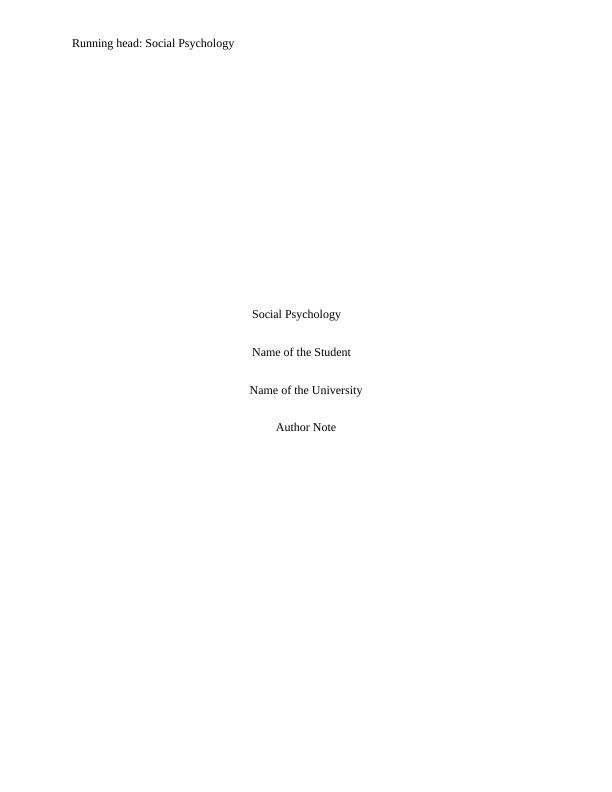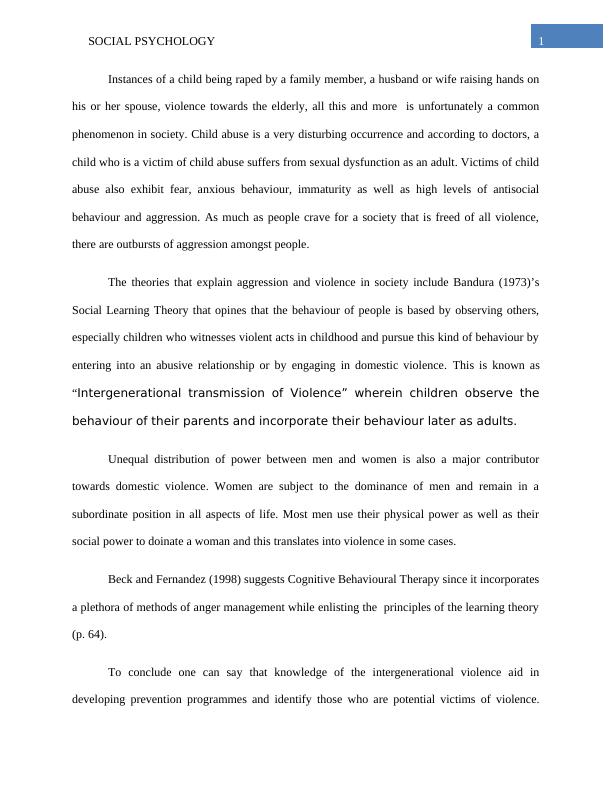Understanding Aggression and Violence in Society: A Social Psychology Perspective
Exploring the relationship between Domestic Violence (DV) and Social Learning Theory (SLT) in the context of intimate partner violence. Examining the role of observational learning and intergenerational transmission of violence.
6 Pages790 Words457 Views
Added on 2023-05-30
About This Document
This article discusses the theories that explain aggression and violence in society, including intergenerational transmission of violence and unequal distribution of power between men and women. It also suggests Cognitive Behavioural Therapy as a method of anger management. Education is also highlighted as a way to prevent violence.
Understanding Aggression and Violence in Society: A Social Psychology Perspective
Exploring the relationship between Domestic Violence (DV) and Social Learning Theory (SLT) in the context of intimate partner violence. Examining the role of observational learning and intergenerational transmission of violence.
Added on 2023-05-30
ShareRelated Documents
End of preview
Want to access all the pages? Upload your documents or become a member.
Alcohol and Family Violence: A Social Psychology Perspective
|5
|901
|240
Effects of domestic violence on children and intergenerational cycle
|15
|3851
|480
EMPATHY AND INTENTION.
|5
|465
|33



